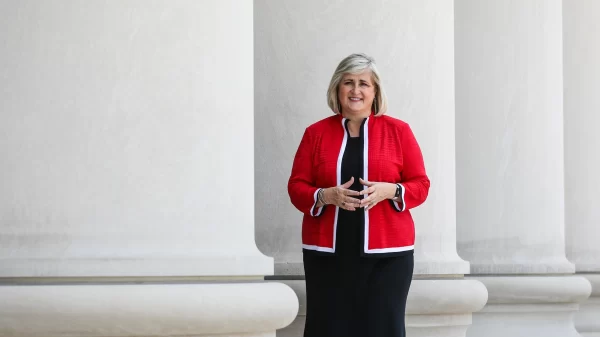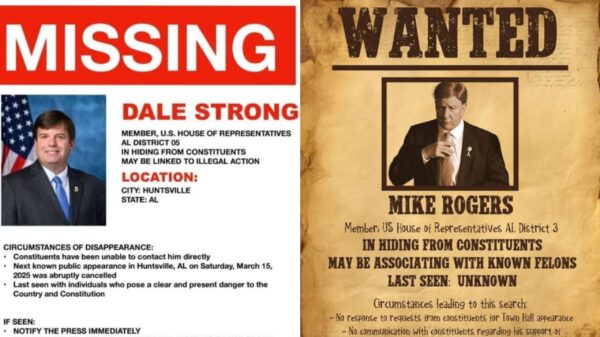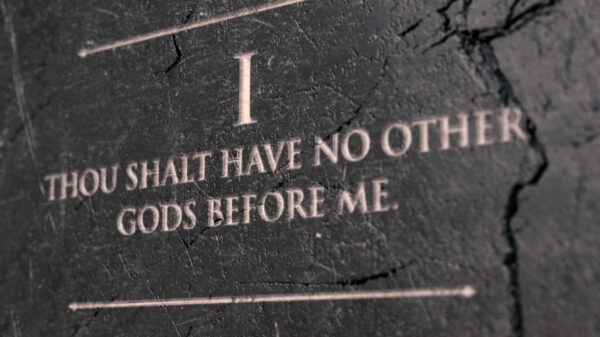|
Getting your Trinity Audio player ready...
|
Alabama lawmakers have wasted no time in 2025, rushing to replace governance with gospel. Once again, they wield religion — not as a guiding light, but as a political weapon. Cloaked in the language of “restoring morality” to public education, House Bill 178 and Senate Bill 166 are not about fostering faith — they’re about enforcing control.
HB178, sponsored by Rep. Mark Gidley, R-Hokes Bluff, and SB166, introduced by Sen. Keith Kelley, R-Anniston, would require the Ten Commandments to be displayed in all public schools and higher education institutions across Alabama. It’s an overt challenge to the First Amendment, a test to see how far lawmakers can push their vision of a government entwined with religious doctrine.
Of course, the Constitution is unambiguous on this issue. The First Amendment prohibits government-sponsored religion, a stance the Supreme Court has consistently upheld. In Stone v. Graham, 1980, the Court struck down a similar law, ruling that the Ten Commandments serve no secular purpose in schools. That precedent was reinforced in McCreary County v. ACLU, 2005, where justices held that government-endorsed religious displays violate the Establishment Clause. If Alabama lawmakers force this mandate through, taxpayers will be left footing the bill for yet another losing legal battle.
But legal precedent doesn’t matter to these lawmakers. Their bet? That the current conservative supermajority on the U.S. Supreme Court will erase yet another safeguard — just like it did with Roe v. Wade. And they aren’t working alone. This push aligns with a broader Christian nationalist agenda seeking to chip away at constitutional protections and redefine the role of religion in public life. Their endgame is clear: dismantle the separation of church and state, brick by brick.
This tactic follows a playbook used by authoritarian leaders worldwide. In Russia, Vladimir Putin has weaponized the Russian Orthodox Church to suppress dissent and cement his rule. In Hungary, Viktor Orbán champions state-backed Christianity to justify authoritarian policies. In Turkey, Recep Tayyip Erdoğan invokes Islam to tighten his grip on power and suppress minorities. These regimes reveal a sobering truth: when the government wields religion as a political tool, democracy and genuine faith both suffer.
Alabama boasts a diverse population with various religious beliefs, including those with none at all. Public schools serve everyone, and government promotion of a specific religious text alienates those who do not share that faith. This isn’t religious freedom; it is government overreach.
Supporters of these bills often claim that the Ten Commandments form the foundation of American law. But that narrative crumbles under scrutiny. The U.S. Constitution is a resolutely secular document, intentionally devoid of references to Christianity or the Bible. Our legal system stems from English Common Law and Enlightenment principles, not ancient religious doctrine. The Founders — many of whom held deeply personal yet private religious convictions — crafted a government that protects freedom of belief, not one that dictates it.
Yet, while lawmakers busy themselves with performative religion, Alabama’s real education challenges remain untouched. Our public schools are underfunded. Teacher pay lags behind. Student performance metrics demand urgent attention. Instead of tackling these substantive issues, the state’s Republican leadership prefers symbolic gestures that stoke division and reinforce their political brand.
Religious belief is deeply personal, best nurtured in homes, places of worship, and private communities — not dictated by the government. Parents who want their children to learn religious principles have ample opportunities to do so without state intervention. But when politicians begin mandating religious doctrine in schools, they don’t strengthen faith — they degrade it, turning it into a political tool.
If Alabama’s leaders truly respected both religion and the Constitution, they would uphold the separation of church and state. They would recognize that public institutions should remain neutral spaces where all individuals — regardless of belief — are respected.
Ronald Reagan once said, “We establish no religion in this country. We command no worship. We mandate no belief, nor will we ever. Church and state are and must remain separate.” This sentiment reflects a longstanding commitment to religious freedom, recognizing that true faith arises voluntarily, not through governmental mandates.
In the landmark case Engel v. Vitale, 1962, the Supreme Court held that reciting government-written prayers in public schools was unconstitutional, violating the Establishment Clause of the First Amendment. Justice Hugo Black wrote that such practices breach the “wall of separation between Church and State,” highlighting the importance of keeping governmental authority out of religious affairs.
Rather than imposing religious texts, our schools should prioritize the teaching of ethics, civics, history, and social studies. These subjects equip students with the critical thinking skills necessary to navigate a diverse society. Both Christians and those of other faiths or no faith should recognize the long-term consequences of government-enforced religion.
If we want to keep our democracy free from religious control, we must act now. The liberties we take for granted today may not be here tomorrow if we stay silent.















































